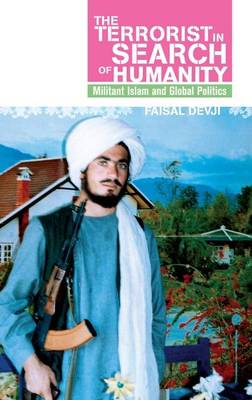
- Retrait gratuit dans votre magasin Club
- 7.000.000 titres dans notre catalogue
- Payer en toute sécurité
- Toujours un magasin près de chez vous
- Retrait gratuit dans votre magasin Club
- 7.000.000 titres dans notre catalogue
- Payer en toute sécurité
- Toujours un magasin près de chez vous
Terrorist in Search of Humanity
Militant Islam and Global Politics
Faisal Devji
Livre relié | Anglais
44,45 €
+ 88 points
Description
Faisal Devji argues that new forms of militancy, such as the actions of al-Qaeda, are informed by the same desire for agency and equality that animates other humanitarian interventions, such as environmentalism and pacifism. To the militant, victimized Muslims are more than just symbols of ethnic and religious persecution-they represent humanity's centuries-long struggle for legitimacy and agency. Acts of terror, therefore, are fueled by the militant's desire to become a historical actor on the global stage. Though they have yet to build concrete political institutions, militant movements have formed a kind of global society, and as Devji makes clear, this society pursues the same humanitarian objectives that drive more benevolent groups.
Spécifications
Parties prenantes
- Auteur(s) :
- Editeur:
Contenu
- Nombre de pages :
- 224
- Langue:
- Anglais
Caractéristiques
- EAN:
- 9780199326693
- Date de parution :
- 24-01-09
- Format:
- Livre relié
- Format numérique:
- Genaaid
- Dimensions :
- 142 mm x 218 mm
- Poids :
- 408 g







